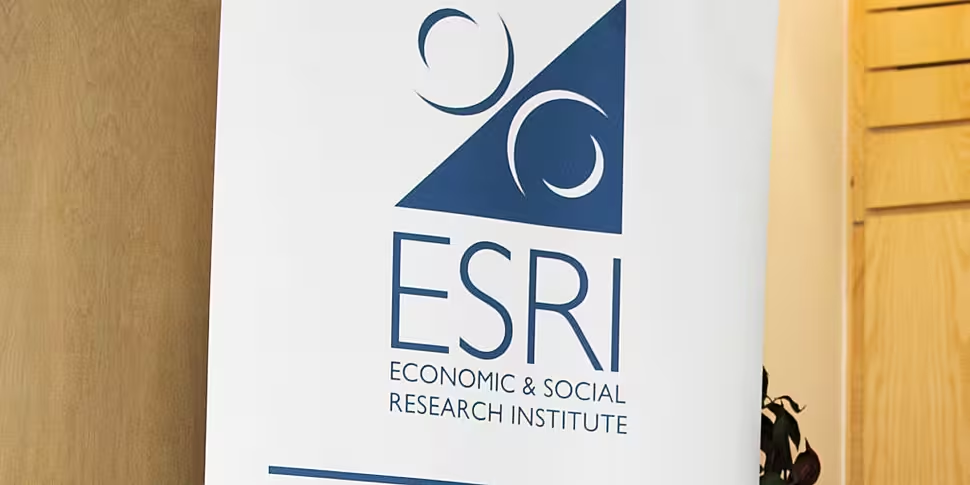The Economic and Social Research Institute (ESRI) has called on the Government to consider some tax increases in a bid to avoid the economy overheating.
In their latest economic commentary, the ESRI says the economy is continuing to grow at a "robust pace" - but the rate of growth is expected to reduce next year.
They're predicting growth of 4.0% in 2019 and 3.2% in 2020.
According to the institute, the economy is "now effectively operating at full capacity".
In a bid to avoid the economy overheating, the ESRI suggests the Government may have to consider a "contractionary budget" - including possible tax increases.
It proposes carbon or property tax increases in particular, as they would "avoid the distortionary effects for employment of any changes in taxes on labour".
However, it stresses that such a policy would have to be reconsidered if there's an economic shock from a no-deal Brexit.
The ESRI's Kieran McQuinn says the UK's departure from the EU remains a major concern.
He explained: "I think Brexit continues to pose a very significant risk.
"What we've shown in the commentary is that even before Brexit has occurred, it has already had a negative impact on the Irish economy."
Mr McQuinn added: "Consumer sentiment seems to have been adversely impacted in the economy over the last six months - we believe this is due to Brexit.
"Clearly if a disorderly, no-deal Brexit were to come to pass in the autumn, this would have further adverse impacts on the performance of the Irish economy."
In their report, the ESRI acknowledges public concerns over carbon taxes, including how it could potentially impact lower income households.
It proposes these concerns could be offset if the carbon tax revenue is returned to households - either directly or through the tax and welfare systems.









